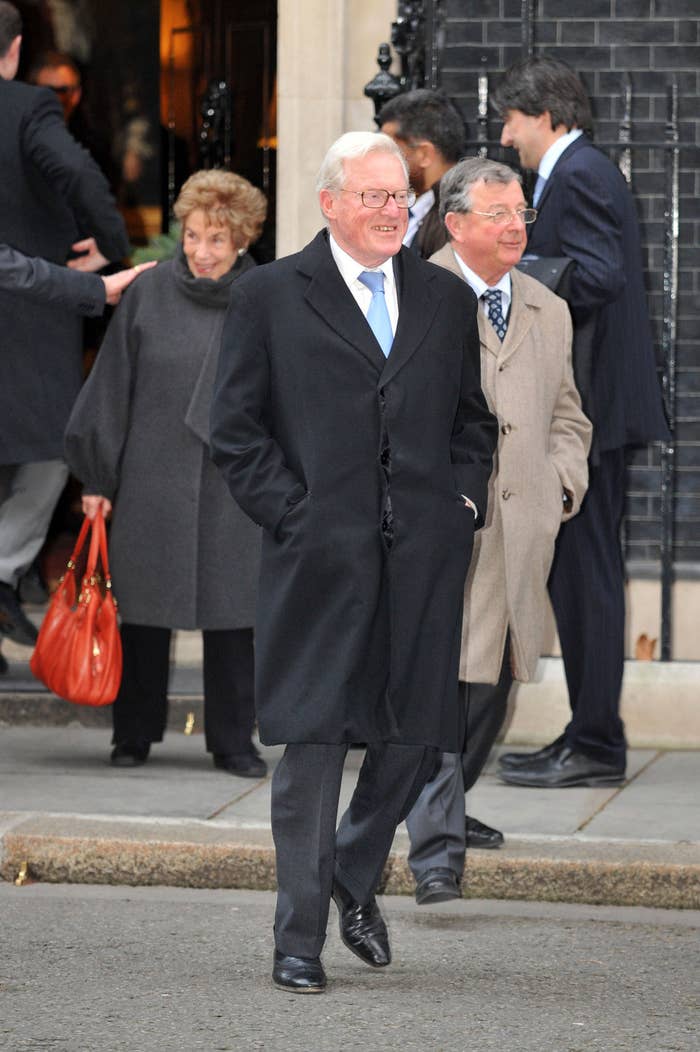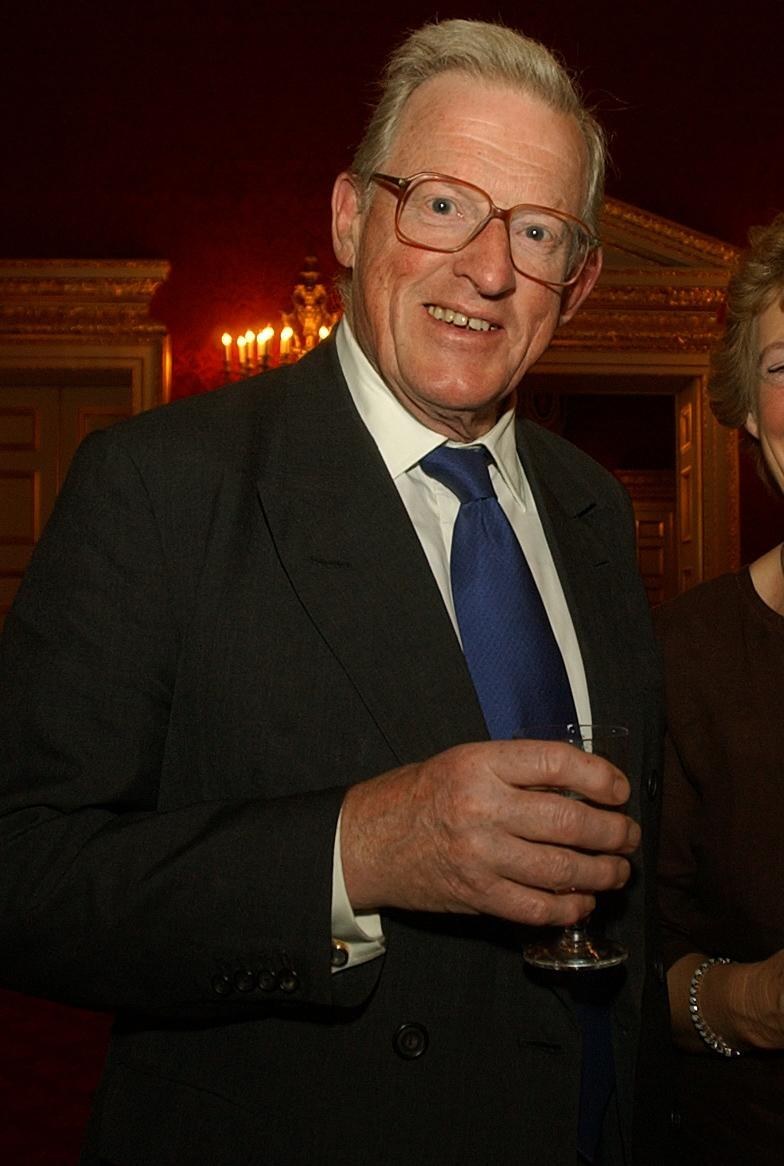This is 81-year-old Tom King, aka Lord King of Bridgwater. He's a peer in the House of Lords, which means he discusses – and can influence – bills before they become law.

And here he is in 1989, when he was the secretary of state for defence.

Last week, King said in parliament that WhatsApp and Snapchat were "entirely" to blame for the advance of the terror group ISIS in Syria and Iraq.

He added: "I don't know about them [WhatsApp and Snapchat]. What is absolutely clear is that the terrorists and jihadists do."
The BlackBerry-touting peer told BuzzFeed News that current counterterrorism legislation needed to be updated to protect British citizens, saying:
Fifteen years ago, BuzzFeed didn't exist, none of the social media context, the Twitter, the Facebook, WhatsApp, Snapchat, these are all very new things and the legislation is out of date.
What is known for instance is that ISIL, in their very rapid advance across Syria and Iraq, did it all on social media.
They did it, I believe, on WhatsApp, where they can talk to a large number of people, and it wasn't possible to find out under British legislation what's actually happening.
But there's one pretty big problem with King's claims: He hadn't actually heard of WhatsApp before last week. He told us:
I think more and more people find it difficult to keep up with all the new things that are coming forward and I think that is the great challenge.
I obviously use [my] mobile, and I'm texting and obviously all the internet and emailing and all that, but I don't get into many of the apps.
Last week, he and three other peers proposed an amendment to the counterterrorism bill that would see internet service providers retain all the metadata of their customers – who they messaged, what time they sent the message, and their location – and pass it on to intelligence agencies without a warrant.
The peers withdrew the amendment after Lord Strasburger criticised it for being "badly written, far too broad in scope, and badly costed".
The former minister also told us that Britain should welcome back jihadis returning from Syria and Iraq because they could "discourage others from going".

He said many Brits who return from Syria get treated like terrorists, and that Britain should instead use them to prevent terrorism.
They're exactly the sort of people who, if we think that ISIL are a dangerous organisation, and is spreading, the people who've experienced it first-hand and are appalled by it.
They are just the sort of people who need to be able to communicate to the people in this country to discourage others from going, who may go for the best of intentions and don't know what they are letting themselves in for.
But King said enforcement agencies have to be careful about who they let in. "Some of them," he said, "are being trained in training camps to commit terrorist attacks here.
"So [there should be a process of] sorting out the wheat from the chaff, and there's some pretty dangerous chaff around."
